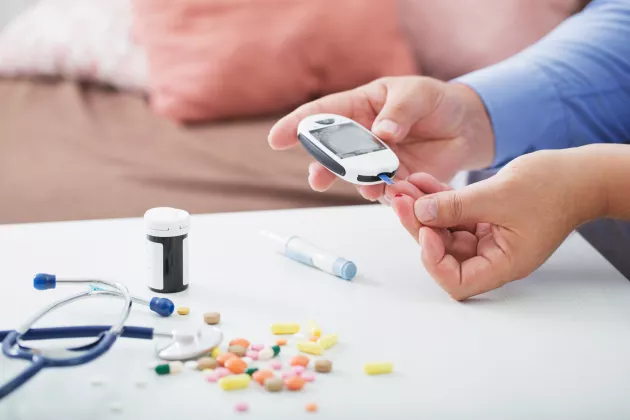Although people with type 2 diabetes are two times more likely to develop cardiovascular disease than those without diabetes, it remains a challenge for clinicians to predict who among this population is most at risk.
“More than 500 million people worldwide live with diabetes. With numbers that high, it’s important to identify readily available ways to accurately classify patients so that those at higher risk of cardiovascular disease can receive the preventative care they need”, says Maria F. Gomez, co-senior author of the study and professor of physiology at Lund University Diabetes Centre.
The researchers reviewed more than 9000 studies published between 1990 and 2021 to identify the most promising biomarker candidates for prediction of cardiovascular disease among people with diabetes. They analysed differences between people with type 2 diabetes who experienced cardiovascular disease and those who did not.
“Our goal was to identify promising markers that could improve cardiovascular risk prediction in people with type 2 diabetes. We wanted to look beyond traditional prognostic factors like hypertension and smoking”, says Nestoras Mathioudakis, co-senior author of the analysis and associate professor of medicine at the Johns Hopkins University School of Medicine.
Out of the 195 biomarkers examined, 13 were significantly associated with cardiovascular risk in people with type 2 diabetes. One of those biomarkers, the peptide hormone NT-proBNP, turned out to be a particularly promising risk marker. This peptide is currently used to monitor heart failure status in patients. The team found that, across several studies, higher levels of NT-proBNP in the body correlated with a higher risk of cardiovascular disease in patients with type 2 diabetes.
“The 13 biomarkers, especially NT-proBNP, warrant further testing to evaluate their potential. If future studies confirm their value in predicting cardiovascular risk in patients with type 2 diabetes, we may be able to change standards of care”, says co-senior author of the analysis Ronald Ma, professor of diabetes at the Chinese University of Hong Kong.
The study that is now published in Communications Medicine was conducted as part of the Precision Medicine in Diabetes Initiative (PMDI), an international partnership between the American Diabetes Association and the European Association for the Study of Diabetes.




